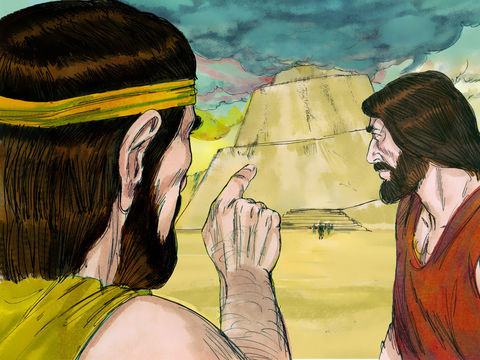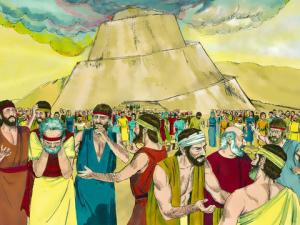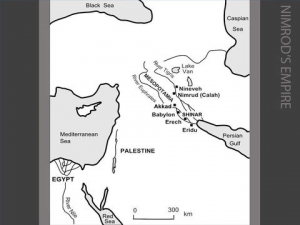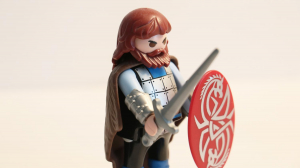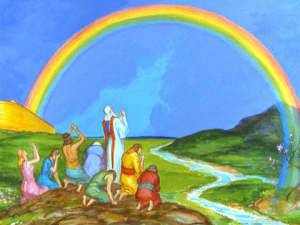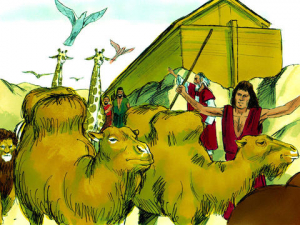Children’s Bible Program – Level 2: Lesson 17 “Abram Leaves for Canaan”
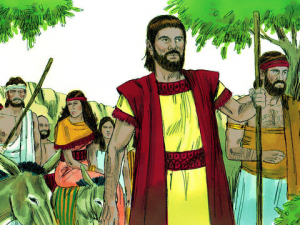
Sweet Publishing | FreeBibleImages.org
By Janth English
Read Together: Abram was born 292 years after the flood. His family lived in a city called “Ur”, which was in the area of modern-day Iraq. He was the youngest son of his father Terah whose ancestor was Shem. Abram married his half-sister Sarai, but they did not have any children. Terah left Ur for Canaan and took Abram, Sarai, and Lot, his grandson, with him. The family stopped for a while in Haran where Terah died. Abram had become very wealthy in Haran. By the time he was 75 years old, he owned livestock, and had silver, gold, and many servants. This would surely have made it hard to leave Haran. But God commanded Abram to leave his home and go to a distant land that He would show him. In return for his obedience, God promised to make Abram’s descendants a great nation. Amazingly, Abram immediately obeyed God. He simply took his wife, his nephew Lot, and all their possessions and left his home for good.
Read Together: Gen. 11:24-32; 12:1-10; 13:2-4
Discuss:
- Explain to your child that it was not uncommon for people to marry close relatives in Abraham’s days. Remind him/her that everyone was closely related after the flood because only one family survived. God later commanded the Israelites not to marry close relatives (Lev. 18:6-17).
- Discuss with your son or daughter how difficult it must have been for Abram and Sarai to pack up and move to a place that they did not know. There were no trucks or vans to move them and no hotels along the way. Ask your student what might have been some of the hardships Abram and Sarai could anticipate on their journey.
- Abram must have known how hard his journey would be. Still, he did not argue with God. He just obeyed what God told him to do. Talk with your child about Abram’s character. Highlight the good example that Abram showed when he obeyed God immediately.
- God promised Abram that he would become a great nation, but that promise was not fulfilled right away. Explain to your student that obedience to God must come first before we receive any rewards.
Review Memorization:
Heb 11:8 NKJV “By faith Abraham obeyed when he was called to go out to the place which he would receive as an inheritance. And he went out, not knowing where he was going.”


